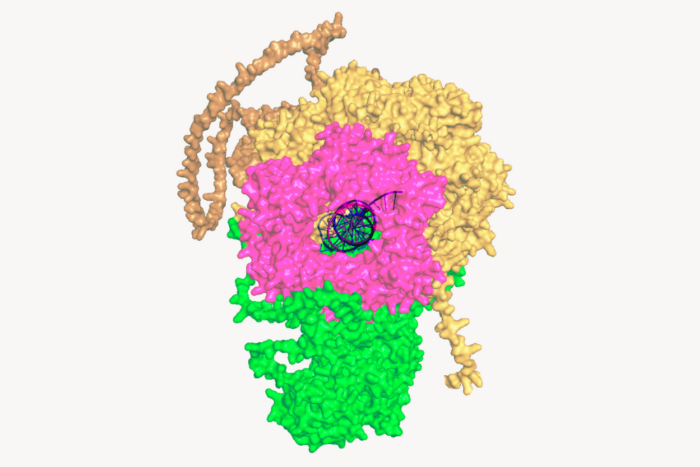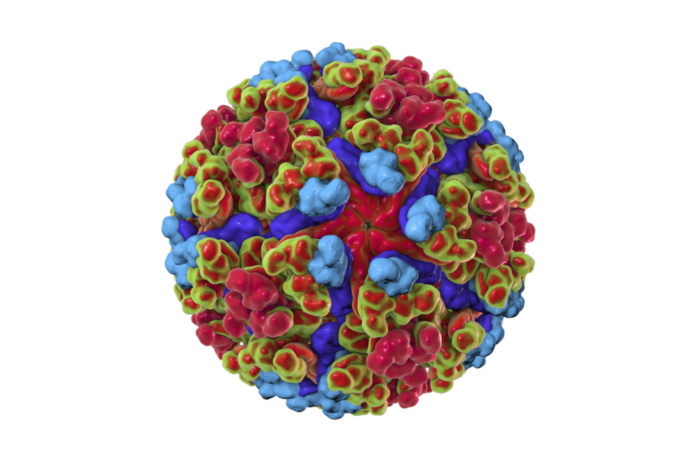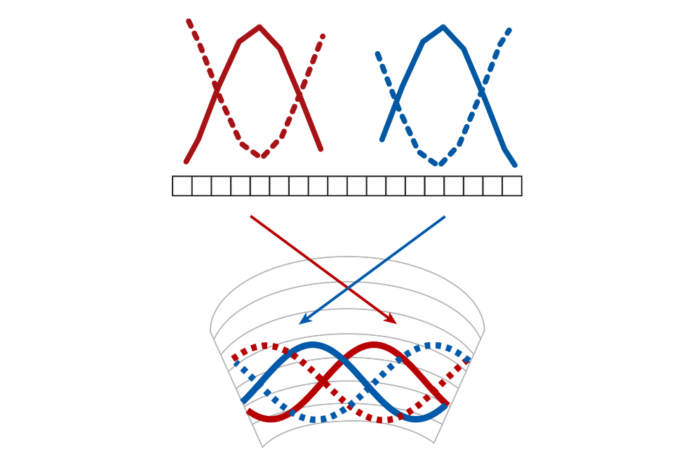Twenty-nine students receive doctorates at Rockefeller’s 57th Convocation
At its convocation ceremony on Thursday, June 11, Rockefeller University presented doctoral degrees to 29 students. In a tradition dating back to the university’s first commencement ceremony in 1959, doctoral candidates received their degrees from their mentors.
In addition, Nicole Le Douarin, a developmental biologist at the Collège de France, and Brenda Milner, a neuropsychologist at McGill University, received honorary degrees from the university. A third honorary degree was given to geneticist Mary Frances Lyon posthumously. Lyon passed away on December 25, 2014. All three honorees are recipients of The Pearl Meister Greengard Prize from the Rockefeller University, which recognizes outstanding female scientists.
Le Douarin is being honored for her discovery, using chimeric embryos containing both chick and quail cells, that precursor cells in the neural crest, a ridge that gives rise to most of the peripheral nervous system, are, in effect, versatile stem cells, and that the migratory pathway these precursor cells take determines the type of cell they will become. Her work made essential contributions to the scientific understanding of how the brain and other structures of the nervous system form, as well as how the immune system develops. Le Douarin received her Ph.D. from the University of Paris. From 1975 to 2000, she was director of the Institute of Embryology at France’s National Center for Scientific Research. She is permanent secretary of the French Academy of Sciences.
Lyon’s honorary degree recognizes her work in genetics. Intrigued by the mottled coat patterns of female mice who had inherited different variants of a color-determining gene, Lyon inferred that the splotchy coats resulted from random silencing of one of the female mice’s two X chromosomes, and thus one of two pigment genes in each cell. Her theory of X-chromosome inactivation suggested an answer to the longstanding question of how female cells can function similarly to male cells, which contain X and Y chromosomes, helped explain the inheritance of certain diseases, and shed light on the mechanisms of epigenetic regulation. Lyon received her Ph.D. from the University of Cambridge, and worked at the U.K. Medical Research Council’s center at Harwell from the 1950s.
Milner is recognized for her research on memory. Working with a patient who had undergone surgical removal of several sections of his brain and so lost the ability to create long-term memories from new experiences, Milner found he could learn and improve upon a challenging drawing skill — even though he could not recall performing the task from day to day. Her work with him and with other patients showed that episodic and procedural memory are different processes associated with different structures in the brain. This led to the hypothesis that the brain has multiple memory systems that govern specific functions. Milner received her Ph.D. from McGill University and a D.Sc. from the University of Cambridge. She is currently a professor of psychology at the Montreal Neurological Institute and McGill University’s department of neurology and neurosurgery.
The graduating students are: Lindsay Bellani, Jabez Bok, Fang-Yuan Chang, Christine E. Cho, Eliot Dow, Akinori F. Ebihara, Clark Fisher, Ariel Halper-Stromberg, Jeffrey G. Johnson, Shaheen Kabir, Anna Katherine Kruyer, Johannes Larsch, Hyeseung Lee, Katherine Jane Leitch, Joseph M. Luna, Jennifer Zuckerman Malin, Alexander R. Nectow, Zeeshan Ozair, Pablo Polosecki, Kavita Rangan, Jason Barzel Ross, Joshua Salvi, Johannes F. Scheid (Class of 2014), Roman Subbotin, Keith Tan, He Tian, Yifan Xu, John Z. Xue, and Daria A. Zamolodchikov.
The University is also recognizing the four founding chairs of its Women & Science program, which highlights the crucial role of basic research in addressing scientific challenges related to women’s health, showcases the contributions of women scientists, creates a program of support for women scientists, and encourages more women to embrace scientific research as a focus of their philanthropy. The Women & Science initiative has raised over $21 million for talented women pursuing careers in the sciences at Rockefeller since its founding in 1998.
The women — Lydia A. Forbes, Isabel P. Furlaud, Nancy M. Kissinger, and Sydney R. Shuman — will receive the David Rockefeller Award for Extraordinary Service.


